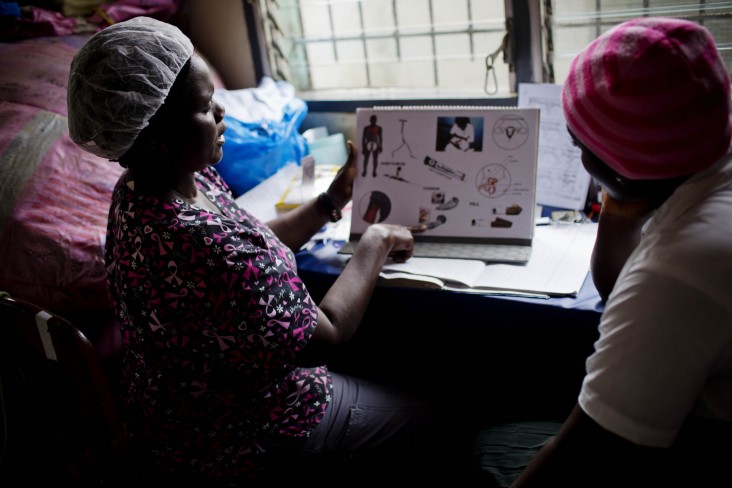
Through integrated human resource information systems (iHRIS), countries like Liberia can identify opportunities to invest in health worker leadership and management training to improve the specific skills health workers and facility managers need to enhance care delivery. Leadership and management training complements health education training and contributes to the effectiveness of health facilities to achieve better health outcomes.
In past years, health professionals in Liberia lacked a systematic way to monitor information on the nation’s health workforce, posing a major challenge for keeping skills and training of the workforce up to date. Louise Mapleh, a manager at Liberia’s Ministry of Health who oversees the implementation of components of the Essential Package of Health Services (EPHS) as well as the National Health Policy and Plan (NHPP), including recruitment, distribution and payment of health workers, was no different. She knew that without capacity to identify gaps in skills and training of health workers, the Ministry of Health (MoH) could not prioritize the critical training areas that needed to reach health workers. However, this problem was solved in 2014 with the launch of the new USAID-funded integrated human resource information system (iHRIS) that allowed the MOH to identify gaps in training and education among the country’s health workforce. Through this system, Mapleh learned that 65 percent of the current maternal and child health workforce had not received updated emergency obstetric and newborn care training. Her team successfully mobilized resources to provide this essential training, enabling a 31 percent increase in facility based service delivery across the country.
USAID supports efforts to strengthen human resources for health (HRH), or the health workforce, to improve a country’s capacity to deploy technically competent, well-distributed health workers. Health workforce systems interventions improve the availability and accessibility of qualified health care providers to a population in order to save lives through adequate and appropriate service delivery. Liberia’s focus on the health workforce, when scaled up with a package of other proven health systems interventions, can contribute to over 17,000 lives from 2016-2020.
Meet more of the women and children that benefit from USAID's efforts.







Comment
Make a general inquiry or suggest an improvement.